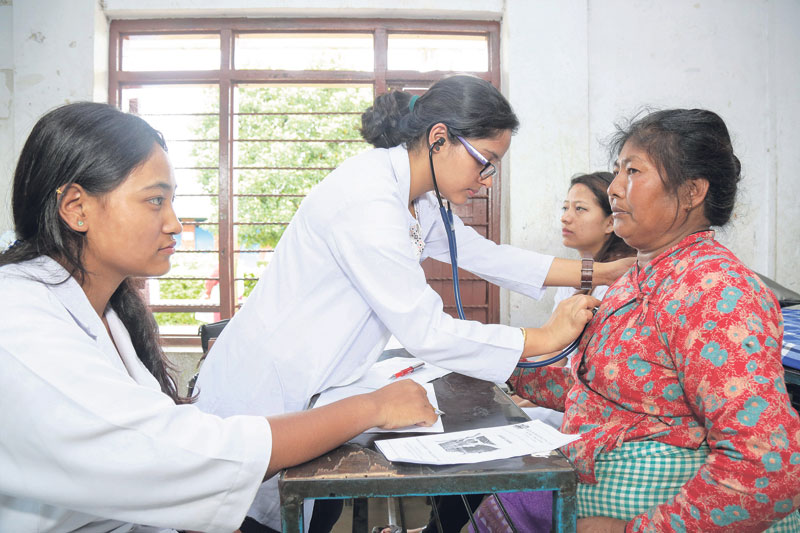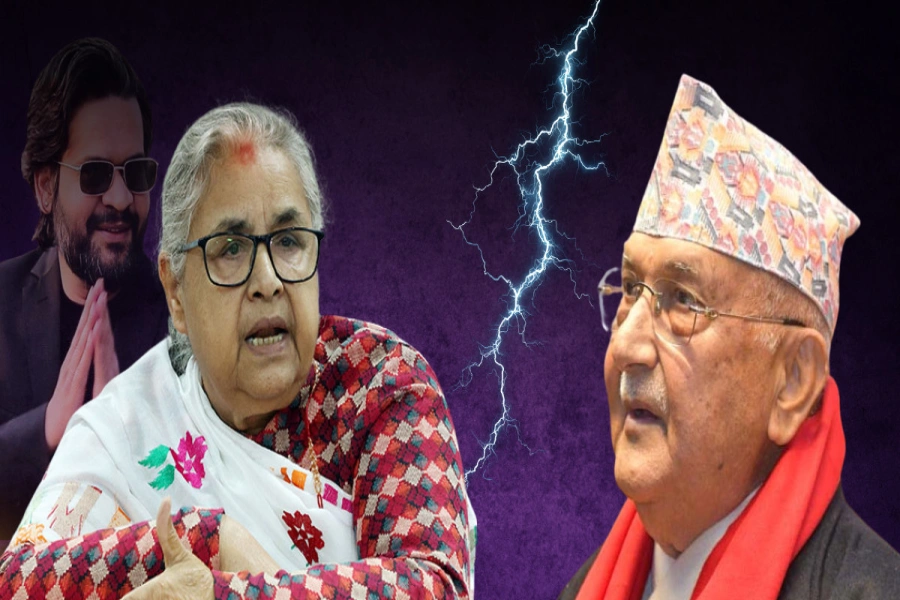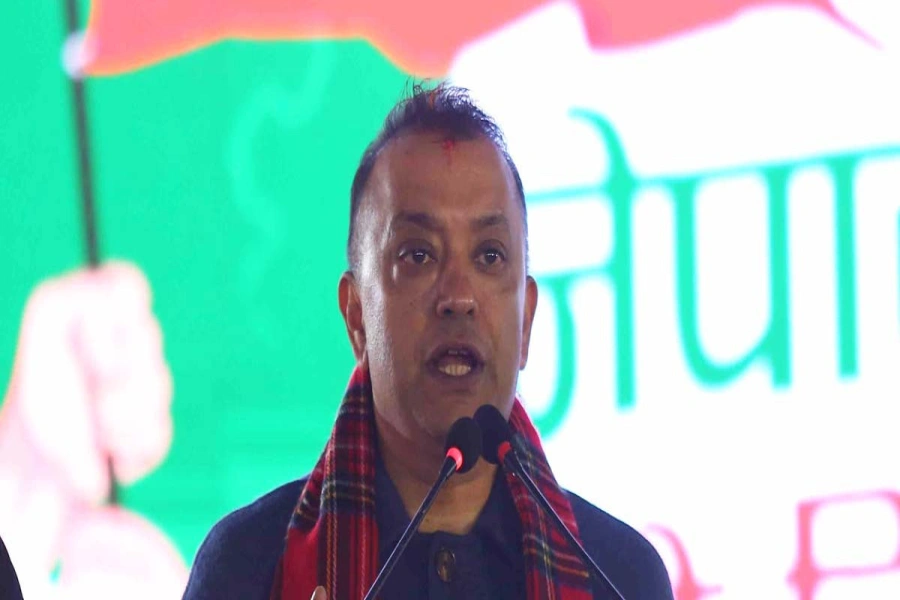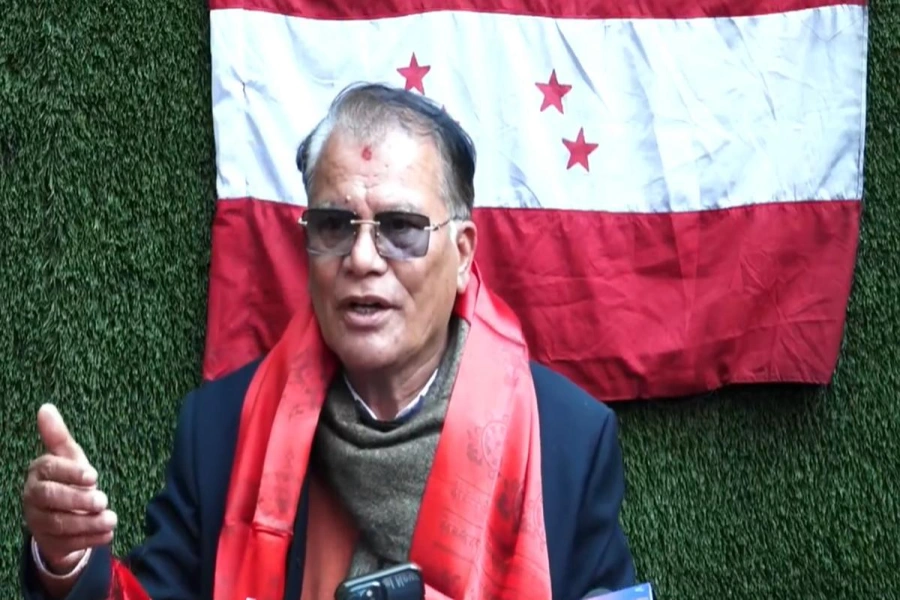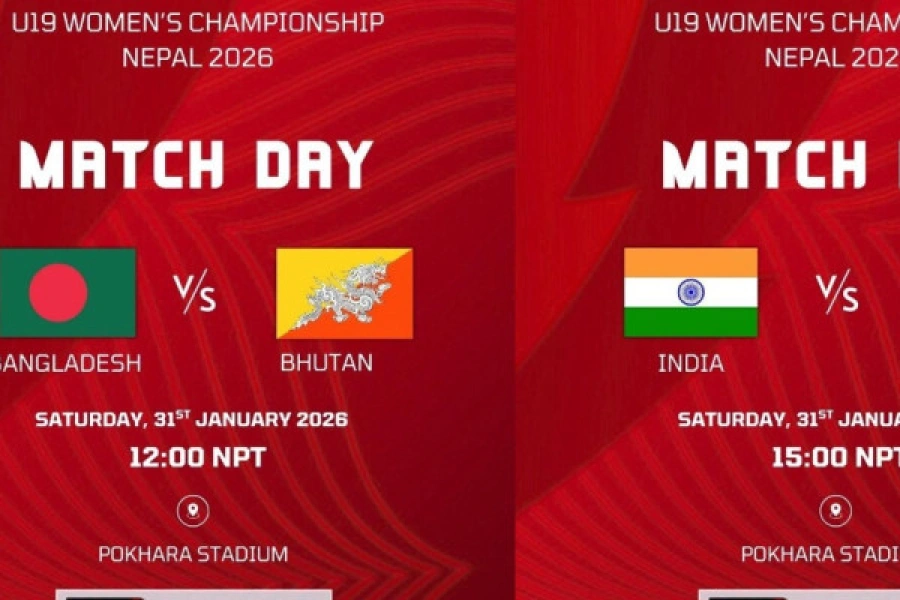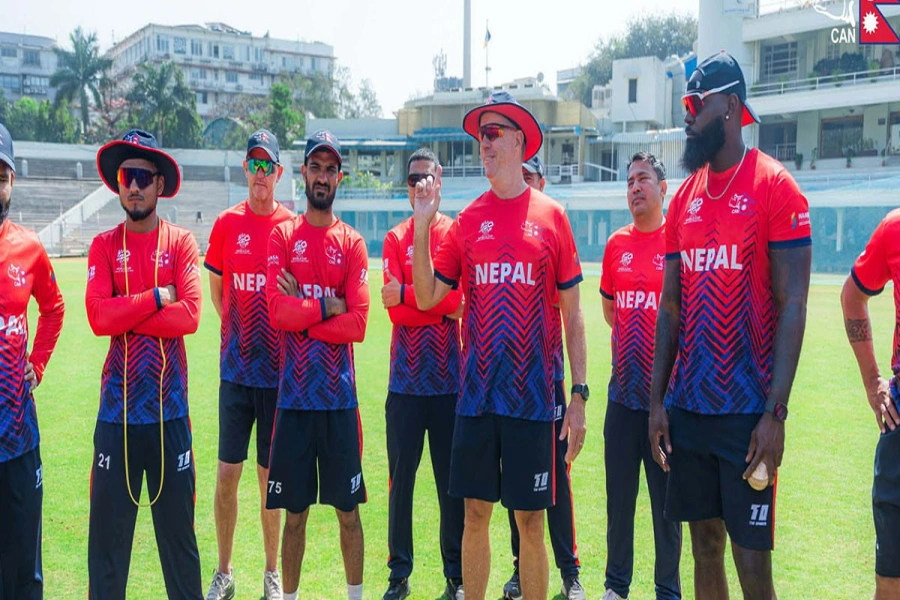The government decision to launch a pilot program on universal health insurance in five districts is a welcome development. Subsidized public healthcare, we believe, will not only raise people’s access to affordable healthcare services and display government commitment to safeguarding the fundamental rights of its citizens, but will also be crucial in production of healthy and productive future workforce. The government spends millions of rupees every year on affordable treatment, including on the provision of free medicines at public hospitals.
Yet, the overall outcome of these subsidized programs at state-run hospitals has been less than desired. The incidents of public hospitals running without doctors, and often without even lifesaving medicines, are making headlines with troubling frequency. This leaves many with the only option of knocking on the doors of private hospitals where the cost of healthcare services are beyond the reach of most Nepalis. The obvious consequence of not having a proper health safety net in place is that even moderate-income families can in no time be teetering on the verge of bankruptcy if a family member has to undergo a major medical procedure.
Studies worldwide have shown that sustained improvement in the people’s quality of life is unlikely unless functional safety nets, especially on healthcare, are in place. These nets provide a cushion in rainy days and allow families to spend more on education, good nutrition and other forms of consumption— the ingredients to building healthy, happy families and communities. This kind of safety net is especially important for a country like Nepal with a large youth base and a rising number of senior citizens.
We believe the latest government initiative with the ultimate goal of availing basic health services to all its citizens is a step in the right direction. But since Nepalis have fallen prey to lofty promises many times in the past, many remain skeptical about whether universal health insurance is another illusory promise offered just to boost government ratings. To prove the skeptics wrong, the government must design a range of insurance schemes and launch them in select districts. While doing so, the government must be careful about not including services that are not worth the cost.
Moreover, the government should understand the sensitivity of the issue and exercise utmost care in making the scheme financially sustainable in the long run, something that is a must for any state-run social security program. Given the huge program costs the state will have to bear, we urge the government to adopt practical and cost-effective strategies. In this connection, the initial plan to exempt people living under the poverty line from annual premium sounds great, but at the same time the government needs to have a clear policy on financing the huge costs involved in providing health insurance to around seven million people below the poverty line. For they will all be eligible for highly subsidized health insurance once the scheme comes into effect. It is important that the government strikes the right balance between costs and quality of care.
Mental Health and Human Rights









